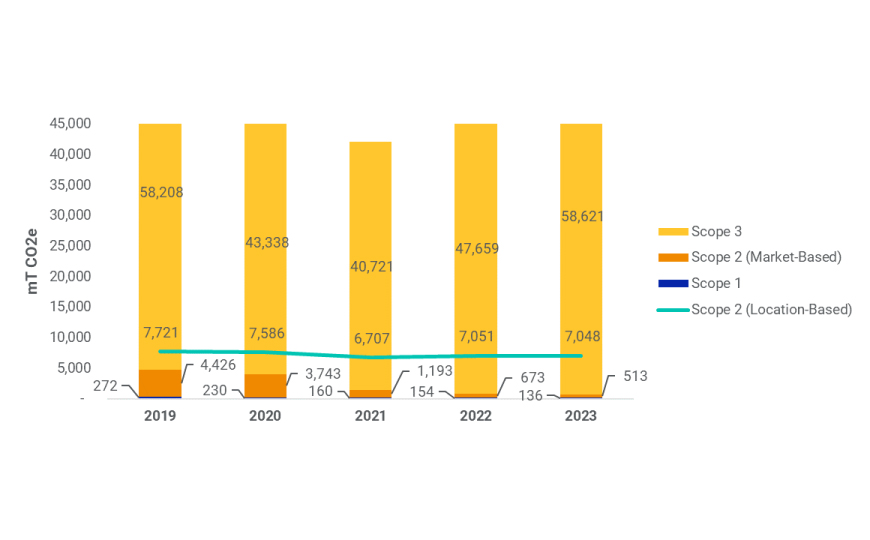
Greenhouse gas emissions
We strive to increase disclosures of the greenhouse gas emissions associated with our business operations. In 2024, due to acquisitions and a change in methodology, we restated and re-baselined our historical emissions from 2019 - 2023. We have received external verification of these numbers as well as for 2023 emissions.
MSCI has established a restatement policy of adjusting historical emissions data (including base-year emissions) to account for significant changes, including structural changes, calculation methodology changes or changes relating to the discovery of a significant error or a number of cumulative errors that are collectively significant, in all cases in accordance with the GHG Protocol Corporate Accounting and Reporting Standard. We may also choose to recalculate historical emissions data for changes that we deem to significantly improve accuracy, in particular when structural changes occur.

Emissions Metrics Report 2019-2023 (PDF, 161 KB) (opens in a new tab) | Assurance Statement Rebaseline 2019-2022 (PDF, 164 KB) (opens in a new tab) | Emissions Metrics Report 2019-2023 (XLS, 68 KB) (opens in a new tab) | Assurance Statement 2023 (PDF, 246 KB) (opens in a new tab) | Rebaseline Assurance Statement 2019-2022 (PDF, 164 KB) (opens in a new tab)


